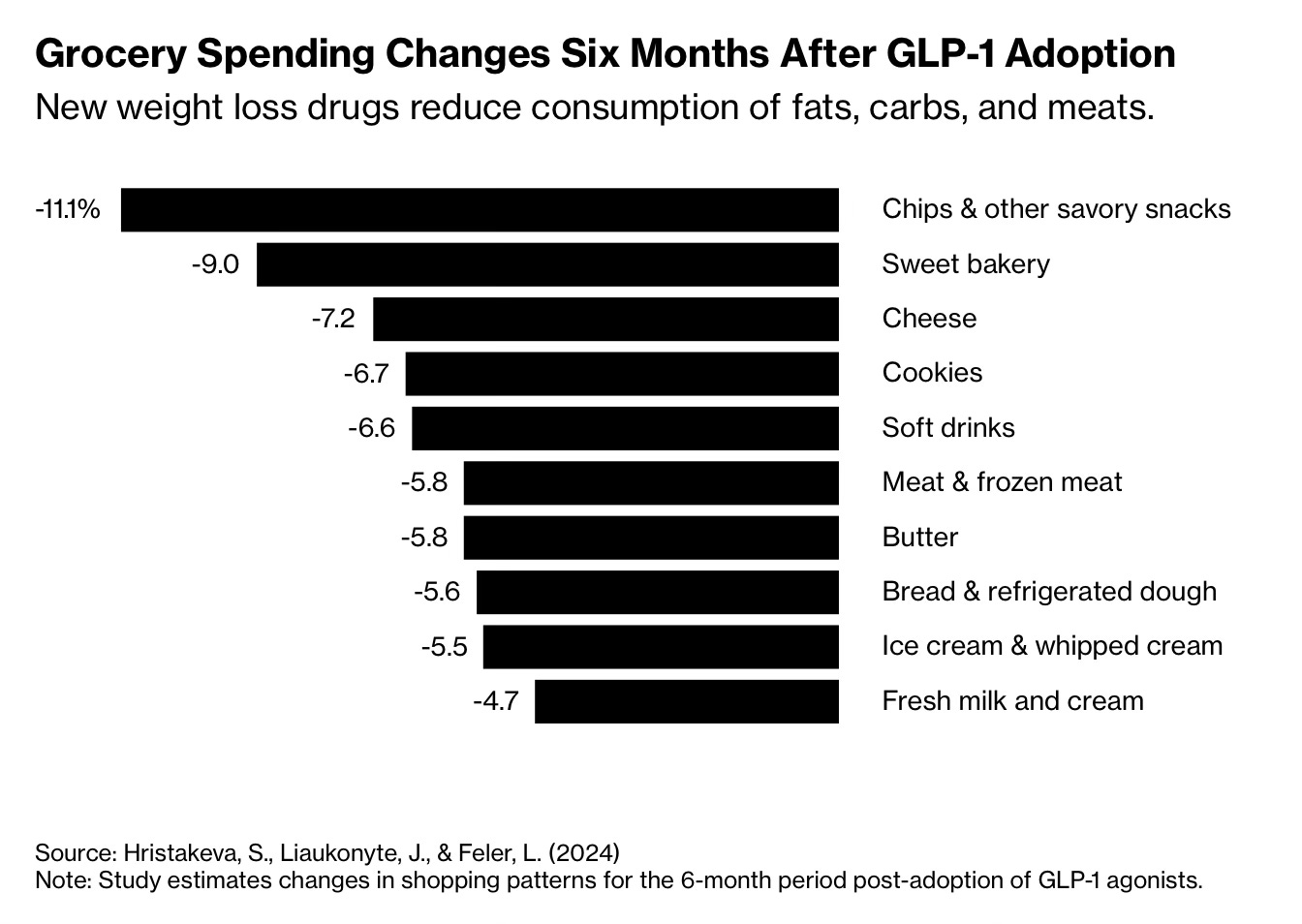The Ozempic effect hits supermarket shelves
Five charts to start your day
Ozempic does not make you healthy. It makes you lighter. For most people, that is enough. But the gap between losing weight and gaining health is wider than the marketing suggests, and the consequences of ignoring it are starting to show up in the data.
Recent studies reveal that up to 40% of the weight lost on these medications comes from muscle, not fat. Muscle stabilises blood sugar, protects joints, and burns calories at rest. Lose it, and you are not just lighter. You are weaker.
Researchers at the University of Virginia found that GLP-1 drugs reduce body weight but fail to improve cardiorespiratory fitness, the best predictor of longevity. Some patients reported feeling their muscle “slipping away” during treatment.
The pharmaceutical companies say these medications should be taken alongside diet and exercise. But the drugs suppress appetite so effectively that many people struggle to eat properly at all. Most are not doing resistance training or getting enough protein. This is the uncomfortable truth: Ozempic does not make you healthier by default. You still need to train, eat well, and build strength. The medication is a tool, not a solution. The economic impact tells a different story about how people are actually using it.
CHART 1 • The Ozempic effect hits supermarket shelves
The impact of new weight loss drugs is beginning to show up in the data, and it is reshaping how people shop for food. Consumers taking GLP-1 drugs like Ozempic and Wegovy are buying less of almost everything that signals comfort or indulgence.
This chart shows grocery spending falling across nearly every category six months after adoption. Spending on chips and savoury snacks dropped 11%, sweet bakery goods fell 9%, and even staples like cheese, meat and soft drinks saw meaningful declines. It is a rare moment where a single class of medication is changing national consumption patterns, from supermarket aisles to restaurant menus. Food companies that once relied on impulse sales are now rethinking their product lines.
The question is how far this will go. If appetite suppressants continue to spread, are we looking at the start of a structural shift in the global food industry?
Source: Bloomberg
The biggest concern I have here is not really about the economics. The real worry is that we haven't really thought what the long-term health effects of taking this drug will be. Obviously, it's beneficial for those who are suffering from obesity and really need help moderating their calorie intake. However, it shouldn't be used by some people. The sacrifices we make for having a balanced diet and also getting sufficient resistance and cardiovascular exercise, shouldn't be ignored. These other things you need for a healthy and long life. And this drug replaces this, then it definitely isn't good for you in the long run.
I've got four more health related chance to show you if you are interested, but you will have to be a paid subscriber. Considerate it. I've got some great charts to share on healthcare.




